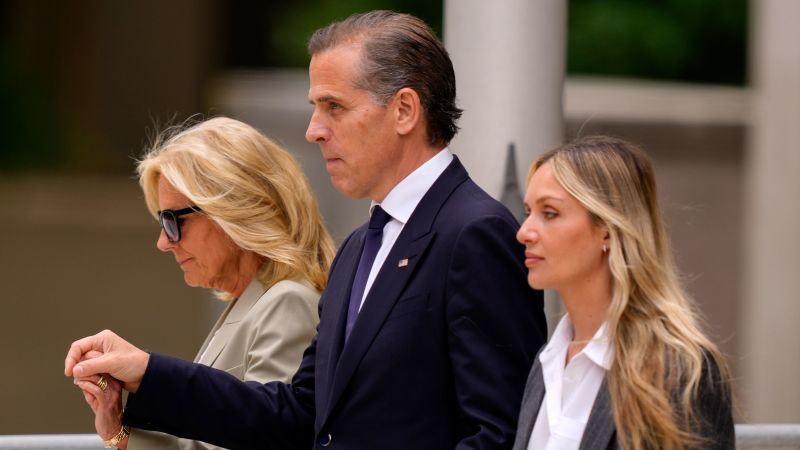Hunter Biden’s conviction on three felony gun charges is significant as it is the first time in American history that a president’s child has been convicted of a crime during their father’s term in office. The charges stem from a federal law that prohibits owning a weapon while being an “unlawful user of or addicted to” illegal drugs. This adds to the ongoing debate around Second Amendment rights, with a pending Supreme Court case on whether domestic abusers can own guns potentially affecting Biden’s appeal to overturn his conviction.
The Supreme Court case, US v. Rahimi, involves the prohibition of Americans under domestic violence restraining orders from owning guns, and is being challenged on Second Amendment grounds. A ruling in favor of Rahimi could potentially provide Biden with a stronger case to challenge his conviction. The case has put Biden on the same side as gun rights groups seeking to overturn laws, as he challenges the constitutionality of the federal law prohibiting gun ownership while addicted to drugs.
Biden’s case is similar to US v. Daniels, a case in the 5th US Circuit Court of Appeals where the federal prohibition on owning guns while addicted to drugs was ruled unconstitutional. Hunter Biden has already raised the Daniels case in court to argue against the law’s constitutionality, despite being denied a dismissal based on these grounds by District Judge Maryellen Noreika. His attorneys may use the 5th Circuit ruling in Daniels to support their argument before the Supreme Court.
The upcoming decision in US v. Rahimi by the Supreme Court is expected to have significant implications for Second Amendment rights and may impact how lower courts handle cases related to gun ownership restrictions. Hunter Biden’s attorneys are hopeful that a broad ruling in Rahimi could lead to a more expansive interpretation of Second Amendment rights, possibly calling into question restrictions on gun possession for individuals with certain legal issues.
The pending Supreme Court decision on Rahimi, expected by the end of the month, will likely influence how cases like Daniels, involving challenges to federal gun laws, are handled in lower courts. Biden’s attorneys are waiting to see how the court rules on the issue of domestic abusers owning guns and how that decision may impact future Second Amendment cases. A broad ruling in Rahimi could potentially shift the landscape of gun laws and restrictions in the United States.
Overall, Hunter Biden’s conviction on gun charges adds to the ongoing debate around Second Amendment rights, with potential implications for his appeal and future gun-related cases. The pending Supreme Court decision in US v. Rahimi could provide Biden with additional support to challenge his conviction, alongside ongoing arguments about the constitutionality of federal gun laws. The outcome of these cases will likely shape the future of gun ownership restrictions and Second Amendment rights in the country.


